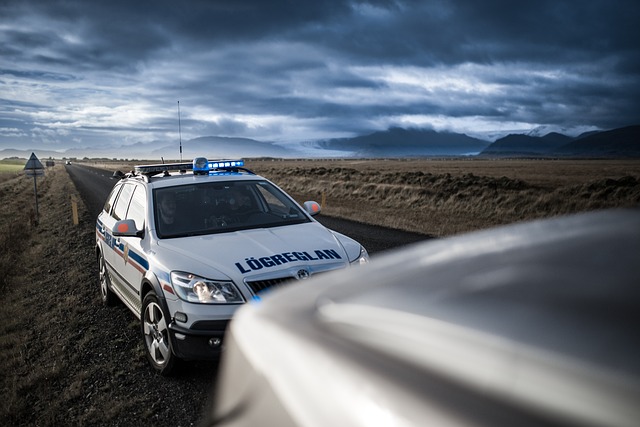How to Contest a Speeding Ticket in Court with Effective Strategies
Getting a speeding ticket may seem like a minor annoyance, but the consequences can be serious. You could face hefty fines, higher insurance rates, and points on your driving record, affecting your driving privileges long-term. Deciding whether to contest a speeding ticket is key, as the effects go beyond the courtroom. Challenging a ticket offers a chance to reduce these consequences and gain insight into traffic enforcement. Many people feel anxious about going to court, unsure of how to handle the situation without making it worse.
However, a closer look reveals opportunities to strengthen your case. Various legal strategies can help improve your situation, including gathering strong evidence, understanding courtroom procedures, questioning the officer’s testimony, and using technical defenses. Each aspect provides important tips for building a solid defense. Additionally, hiring a speeding ticket attorney can be vital to achieving a successful outcome.
Preparing Your Defense: Gathering Evidence
To contest a speeding ticket in court, it’s essential to collect and organize your evidence carefully. Start by getting the calibration and maintenance records for the speed detection device that recorded your speed; these documents could show inaccuracies that question the ticket’s validity.
Also, gather witness statements from passengers who were with you during the incident; their accounts can add credibility to your defense and challenge the prosecution’s version of events. Take photographs of the location, traffic signs, road conditions, and any visual obstructions that existed that day.
Legal Procedures: What to Expect in Court
When entering the courtroom to fight a speeding ticket, it’s important to know the usual legal steps involved. First, you’ll go through an arraignment, where you’ll officially plead guilty, not guilty, or no contest. Next is the discovery phase, where both sides exchange evidence. Knowing what to expect can help reduce anxiety; it’s a routine process you can use to your advantage.
During the trial, each side will present their arguments, starting with the prosecution, who will explain their case against you. You’ll have the chance to challenge their evidence and present your defense. Pay close attention to the testimonies, and be ready to question the officer’s account if there are inconsistencies, as this can strengthen your argument. The judge will evaluate the evidence and make a decision.
Challenging the Evidence: Disputing Officer Testimony
To effectively challenge an officer’s testimony, it’s essential to understand what they said and the reasons for disputing it. While officers are trained professionals, they can still make mistakes in what they see or remember. A good strategy is to identify inconsistencies or gaps in their account. For example, was the officer positioned well enough to accurately judge speed? Could they have mistakenly identified the wrong vehicle in heavy traffic? These questions can guide your cross-examination.
If the officer relies mainly on memory instead of recorded evidence, that can be questioned as well. Note any moments when the officer seems unsure or may have ignored proper procedures. Pointing out discrepancies clearly can raise doubts about their reliability. Additionally, comparing the officer’s account with your evidence—such as photos or witness statements—can reveal inconsistencies that weaken their testimony.
Employing Technical Defenses: Equipment and Environmental Factors
Examining the accuracy of the equipment and the environmental impact is vital when using technical defenses. For instance, speed detection devices must be properly calibrated to provide accurate readings. Gaps in maintenance records or infrequent calibration checks can raise doubts about the recorded speed, which may aid your defense.
Additionally, the weather and location during the speeding incident are important. Was the sun shining directly into the officer’s radar, possibly affecting the readings? Or was bad weather limiting visibility and impacting the officer’s judgment? These factors can reveal potential mistakes or inconsistencies. By analyzing these elements, you create multiple angles for your defense.
Deciding When to Seek Legal Assistance
Deciding whether to hire a lawyer for a speeding ticket depends on personal circumstances and the details of the case. While representing yourself might seem cheaper, there are times when a lawyer’s expertise can be very helpful. If the ticket comes with serious penalties, like hefty fines or the risk of losing your license due to points, legal help could improve your defense.
For those unsure about legal procedures or managing court, an attorney can provide clarity and structure, potentially leading to a better outcome. On the other hand, some may find legal fees too high, especially for minor tickets. However, others may view these costs as an investment to protect their driving record and avoid higher insurance rates.
Addressing a speeding ticket is important for safeguarding your legal and financial future. While it may seem like a minor issue, the consequences of ignoring or mishandling a ticket can escalate quickly, leading to increased fines, legal complications, and even impacts on your driving privileges. By gathering evidence, understanding courtroom procedures, and effectively challenging the officer’s testimony, you can strengthen your defense. Additionally, evaluating the need for legal assistance can be a vital step in sorting through the specifics of traffic violations. Taking prompt action ensures you can mitigate risks and maintain control over your driving record and finances.

